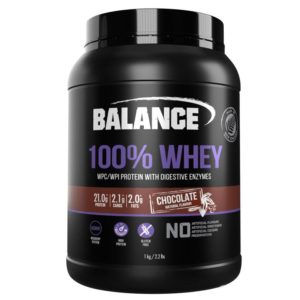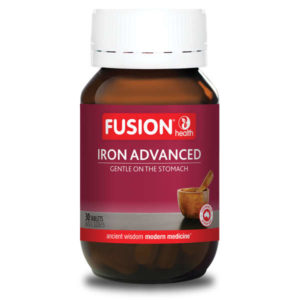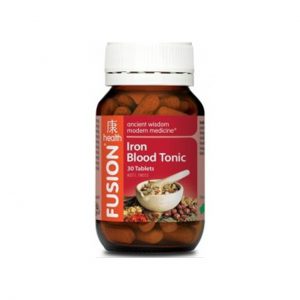Liquid Vitamin D-3 1000IU
$39.95 $29.95
Vitamin D is normally obtained from the diet or produced by the skin from the ultraviolet energy of the sun. However, it is not abundant in food. As more people avoid sun exposure, Vitamin D3 supplementation becomes even more necessary to ensure that your body receives an adequate supply.
Vitamin D is normally obtained from the diet or produced by the skin from the ultraviolet energy of the sun. However, it is not abundant in food. As more people avoid sun exposure, Vitamin D supplementation becomes even more necessary to ensure that your body receives an adequate supply.
Key Features of Liquid Vitamin D-3
– Structural Support
– 1,000 IU Per Drop
– Helps Maintain Strong Bones
– GMP Quality Assured
– A quality, health dietary Supplement
NOW VITAMIN D-3 and the research!
One of the simplest things you can do to lose fat and improve body composition is to make sure you are getting enough vitamin D. Over and over again, research shows that if you have low vitamin D, you will be more likely to be overweight, have less muscle mass, and be at higher risk of a long list of diseases.
What is concerning is that even though vitamin D deficiency is SO easy to solve, it is SO widespread!
Surveys estimate that anywhere between 40 and 90 percent of the population is deficient depending on ethnicity and season. In the hope of convincing you to attend to your vitamin D status, here are ten things you should know about vitamin D if you want to be lean, strong and healthy:
1) Vitamin D is produced in the body in response to direct sunlight. In order to maintain vitamin D levels from sun exposure, scientists suggest you need to be in direct sunlight for at least 20 minutes every day between the hours of 10am and 2pm.
2) Wearing sunscreen of sunglasses, or having dark skin colour will significantly impede your body’s ability to produce vitamin D.
For example, a 2010 survey of Americans found that 70 percent on whites but 93 percent of blacks were deficient in vitamin D. A second study comparing the relationship between belly fat percentage and vitamin D status in white Europeans and South Asians found that the South Asians had much lower vitamin D levels (the average was 21 ng/ml, which is just above “deficient” status). Lower Vitamin D was associated with greater belly fat and total body fat percentage.
If you are a person of colour or wear sunscreen and sunglasses, you need to supplement with vitamin D even if you are in the sun daily.
3) Low vitamin D is associated with greater fat mass in all ages, races and both genders. For instance, a new study of overweight women found that those who took vitamin D for 12 weeks lost 2.7kg of fat compared to a placebo group that lost nothing. They didn’t even modify diet or weight train.
If you are still not convinced, separate surveys of children, men and women showed that those with lower vitamin D had more body fat, and more belly fat. Out of 237 children, the majority were deficient in vitamin D (73 percent of blacks and 40 percent of whites were deficient) and vitamin D levels were inversely associated with belly fat and total fat percentages.
4) Since low vitamin D leads to fat storage, it “produces a toxic milieu by initiating metabolic and inflammatory cascades,” writes one research group. They go on to explain that this cascade increases fat storage rates and worsens the inflammatory state in the body.
Low vitamin D also decreases pancreatic cell function and affects insulin sensitivity because there are vitamin D receptors on insulin cells. Therefore, in addition to increasing the amount of fat you have, low vitamin D puts you at a risk for continual fat gain and diabetes.
5) The inflammatory state associated with vitamin D compromises muscle function and leads to fat accumulation in muscle. For example, a study of collegiate women in Southern California found that vitamin D status was inversely correlated with the amount of fat they had in their muscle.
Researchers were alarmed since the population was young, fit and living in a sunny climate. 24 percent of the women were deficient (below 20 ng/ml) and 35 percent had insufficient (between 20 and 30 ng/ml) vitamin D.
The mechanism behind this is that vitamin D mediates protein synthesis and energy use. This leads to muscle and strength development, or the unfortunate effect of fat accumulation in muscle.
6) Because of the role vitamin D plays on muscle and strength, lack of vitamin D will increase injury risk. Vitamin D enhances the immune system, while low vitamin D increases the chance of illness. For example, in a study of professional football players, the average vitamin D level of those who experienced an injury was 19.9ng/ml. The black players on the team were more likely to be deficient and more likely to be injured.
7) Vitamin D levels are associated with muscular power. Adequate vitamin D has been found to increase size and strength of type II muscle fibers in a variety of populations. A recent study found that overweight adults who took vitamin D in conjunction with doing a strength training program increased their explosive power significantly more than a group that didn’t take vitamin D.
8) Low vitamin D is associated with low testosterone and poor fertility in men. Research found that men with adequate vitamin D (above 30ng/ml) had higher testosterone levels, the leanest body composition, a greater percentage of lean mass, and better overall health than men with insufficient vitamin D.
Supplementing with vitamin D can help men lose weight. A study found that giving men with low testosterone and vitamin D deficiency 3,332 IUs of vitamin D daily for a year raised their free testosterone levels by 20 percent. They also lost 6kg over the course of the study!
Vitamin D is thought to inhibit aromatization of testosterone to estrogen. There are also vitamin D receptors on cells throughout the reproductive tract, making availability of this vitamin essential for fertility.
9) Women need vitamin D for reproduction, hormone balance and body composition as well. Just as vitamin D affects testosterone in men, it influences sex hormone levels in women too.
In addition, mothers who have adequate vitamin D have leaner offspring. Research suggests that vitamin D affects genetic signalling pathways linked to metabolism in a developing fetus. Low vitamin D has also been associated with greater risk of gestational diabetes and diabetes in offspring during childhood.
Another study showed that pregnant women who were given 4,000 IUs of vitamin D daily for a month from 12 to 16 weeks of pregnancy had healthier babies and lower rates of pre-term labor than woman who took a lower dose of vitamin D.
10) Low vitamin D is a performing-limiting factor in athletes. On the other hand, when your levels are optimal, vitamin D is considered a performance-enhancing substance. Naturally, since it affects the production of hormones like testosterone and estrogen, it will influence strength and power, but it also enables the action of calcium and magnesium, which are necessary for powerful muscle contractions.
Surveys of athletes show that performance is significantly enhanced during summer months when vitamin D levels are naturally higher. Performance drops off over the winter, reaching a low point in March or April, and injury and illness rates increase over the winter season as vitamin D levels naturally drop.
The take away is that if you are not attending to your vitamin D level, you are not going to be as lean and strong as you could be. The solution is SO simple: Optimize your vitamin D level and improve body composition and get better results from training.
Suggested Use
Shake well. As a dietary supplement for adults, take 1 drop 1 to 2 times daily. Take directly or add to your favorite beverage. Best when taken with a fat-containing meal.
Other Ingredients
MCT oil (medium chain triglycerides).
Not manufactured with wheat, gluten, soy, milk, egg, fish or shellfish ingredients. Produced in a GMP facility that processes other ingredients containing these allergens.
| Size |
|---|
Be the first to review “Liquid Vitamin D-3 1000IU” Cancel reply
You must be logged in to post a review.
Related products
Hemp Products
Anabolic Formulas
Beauty
Body Building
Detox
Gluten Free
Body Building
Gluten Free















Reviews
There are no reviews yet.